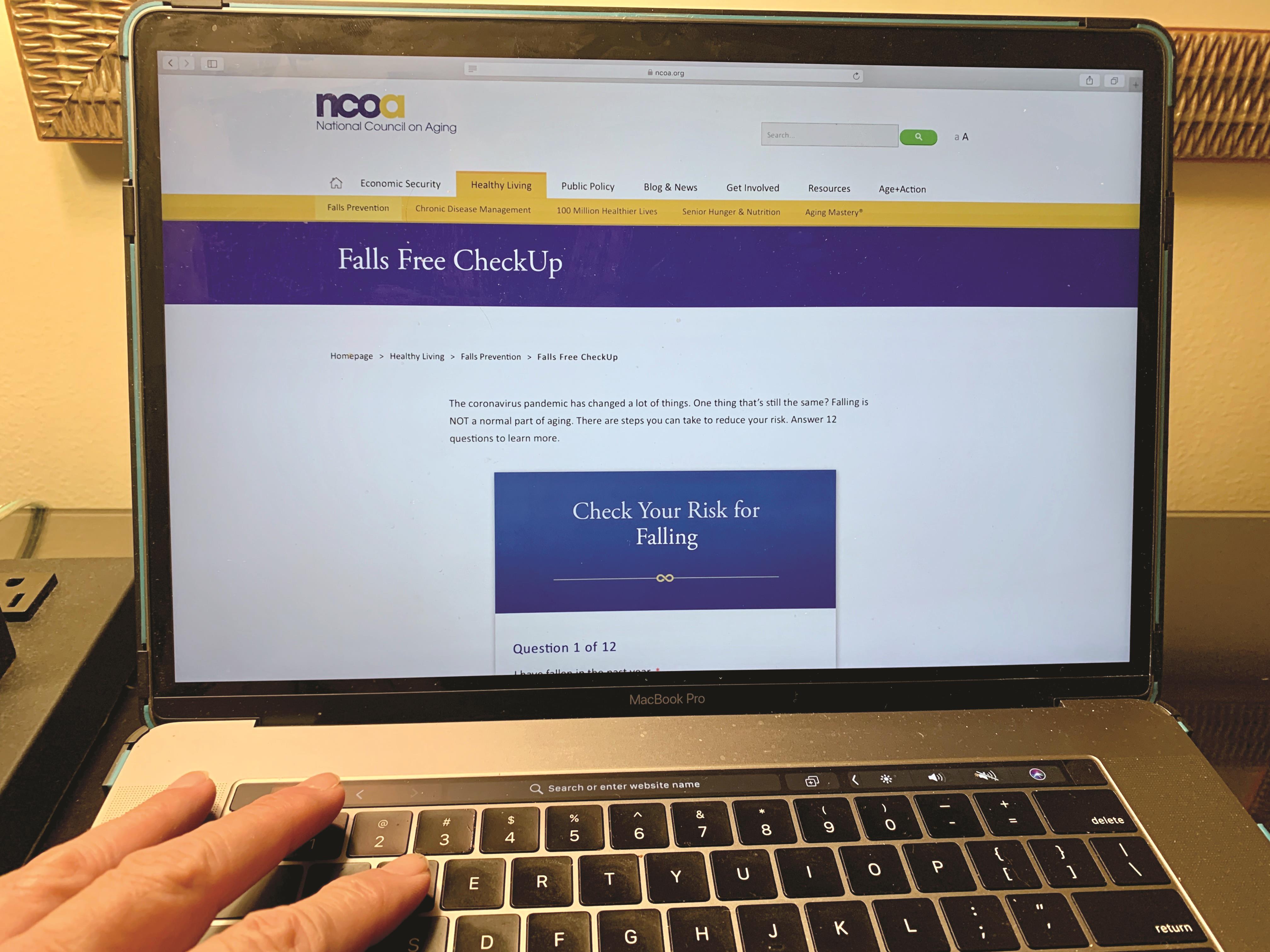Free Online Survey Alerts Older Adults to Risks of Falling, a Major Hazard
(NewsUSA) - The coronavirus pandemic has changed a lot of things. One thing that's still the same? Falling is NOT a normal part of aging. There are steps you can take to reduce your risk.
- The coronavirus pandemic has changed a lot of things. One thing that's still the same? Falling is NOT a normal part of aging. There are steps you can take to reduce your risk.
Even during the COVID-19 era, falls remain the leading cause of fatal and non-fatal injuries for older adults. Falls can significantly impact an older adult's quality of life. A fall can cause older persons to become socially isolated or fearful of leaving home and can lead to costly medical expenses.
One important first step toward staying safe is learning what aspects of your life can put you at greater risk of falling. The National Council on Aging (NCOA), a trusted national leader working to ensure that every person can age well, has created a free online survey to help you identify your falls risks - and offers practical steps to address them.
It's called the Falls Free CheckUp, and it's being launched as part of NCOA's annual Falls Prevention Awareness Week, Sept. 21-25.
"We want older adults to be their own agents of change in ensuring they age well," says Kathleen Cameron, senior director of NCOA's Center for Healthy Aging. "The Falls Free CheckUp provides an easy-to-use and confidential screen of falls risks as a first step in preventing falls. NCOA also offers practical and proven ways to address those risks."
The Falls Free CheckUp is available in both English and Spanish. It features 12 statements about reasons that are known to increase falls risk. Older adults answer yes or no to each statement and then see an explanation of why that reason matters. For example, "Sometimes I feel unsteady when I am walking," is followed by the statement: "Unsteadiness or needing support while walking are signs of poor balance."
After completing the self-directed survey, older adults receive a personalized risk score, along with practical steps they can take to prevent falls. They can share this information with their caregivers and health care providers to discuss how to reduce their falls risk and take action.
Next steps could include better use of a cane or walker, adjusting medications, getting a hearing or eye checkup, or adding strength and balance exercises with a doctor's approval.
In addition to launching the Falls Free CheckUp, NCOA will be hosting free English (Sept. 23 at 6:30 pm EST) and Spanish (Sept. 24 at 6:30 pm EST) Facebook Live events during Fall Prevention Awareness Week to highlight this important health topic.
For more information, visit www.ncoa.org/FallsWeek.







